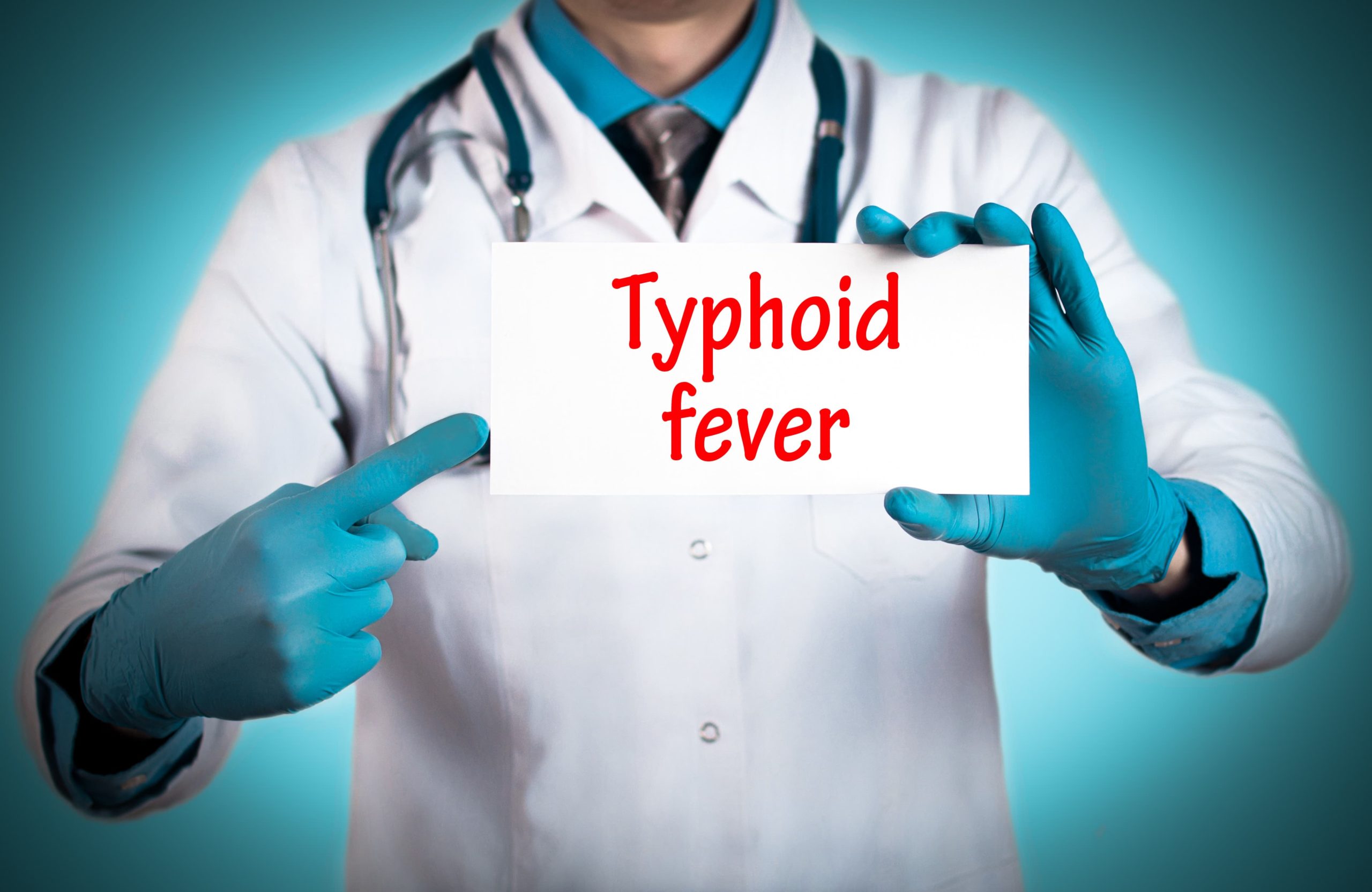Preventive Healthcare
What are The Different Types of Typhoid?
27423 Views
0

What is Typhoid?
Typhoid is a bacterial infection that results in high fever, diarrhoea, and vomiting, among other symptoms. Though rare in developed countries, typhoid fever is still very prevalent in developing countries of Southeast Asia, South America, Africa, and India. It has been estimated that about 20 million people suffer from typhoid fever globally every year. Children are at the most significant risk of getting typhoid infection.
What Are The Different Types of Typhoid?
There are two typhoid types: typhoid fever and paratyphoid fever. Both of these together are grouped as enteric fever. Typhoid and paratyphoid are systemic infections caused by the ingestion of food or water contaminated by the bacterium Salmonella. Typhoid fever is caused by Salmonella typhi, whereas paratyphoid fever is caused by Salmonella paratyphi. Paratyphoid fever is less prevalent and milder in severity than typhoid fever.
Enteric fever is quite contagious. If you are infected, you can discharge the bacteria from your body through the faeces or, less frequently, through urine. It commonly spreads when you use the bathroom and do not wash your hands.
What Are Signs and Symptoms of Typhoid?
Typhoid fever and paratyphoid fever both exhibit similar symptoms. Usually, the symptoms appear 1–3 weeks after bacterial exposure.
The most common symptoms of typhoid fever are:
- An extremely high temperature that does not go down and becomes worse every day, reaching 104°F.
- Headache.
- Generalized discomfort and aches.
- Cough.
- Extreme fatigue.
- Constipation.
Additional symptoms start developing as the infection worsens, such as:
- Reduced appetite.
- Diarrhoea.
- Bloating/nausea.
- Abdominal pain.
- Weakness.
What Causes Typhoid Fever?
The Salmonella typhi bacteria brings on typhoid. The bacteria enter the body through the mouth, invade the intestines and grow there for one to three weeks. They then cross the intestinal wall and enter the bloodstream, which starts affecting the body's different organs, resulting in symptoms of fever, abdominal pain, diarrhoea, vomiting, etc. Thus, the symptoms of typhoid begin gradually and become apparent only after 1-3 weeks. The body’s immune system cannot fight the bacterium effectively as this microbe lives within the host cell.
How Does Typhoid Infection Spread?
Food, beverages, and drinking water contaminated with infected faecal matter are the primary modes of typhoid transmission.
If you are infected with typhoid, you can contaminate any food you touch if you do not wash your hands after using the restroom. Anyone who consumes this food could also catch the illness.
Human waste can contaminate the water supply where sanitation is a problem. If the water is contaminated, washing fruits and vegetables can also spread the illness. Similarly, improperly cooked food in contaminated water can also be infectious.
Many individuals do not exhibit the symptoms of typhoid fever, even when harbouring the bacterium inside their bodies. They act as carriers and can spread infections. This can also be true for recently recovered typhoid patients.
How is Typhoid Diagnosed?
Typhoid fever must be diagnosed and treated as soon as possible to avoid complications like severe intestinal bleeding or perforation. Your doctor can order blood tests, stool tests, urine tests, or bone marrow tests to confirm the diagnosis of typhoid fever. These samples are cultured and inspected under a microscope to look for the disease-causing Salmonella typhi bacteria.
Another test that doctors widely prescribe and rely upon for the diagnosis of typhoid is the Widal test. This blood test is a biochemical agglutination test that detects antibodies your body produces against Salmonella bacteria.
When is the Widal Test Recommended?
Suppose you are exhibiting the primary symptoms of typhoid, such as a very high fever that does not subside, headache, diarrhoea or constipation, abdominal pain, body aches, tiredness, or rash. In that case, your doctor may order a Widal test to confirm the diagnosis of typhoid.
How is Typhoid Treated?
Typhoid can only be effectively treated with antibiotics. Doctors usually recommend ciprofloxacin to individuals who are not pregnant. Since drug resistance is common nowadays, alternative antibiotics such as azithromycin, ofloxacin, or ceftriaxone may also be prescribed.
Treatment also includes symptom relief that is provided by:
- Encourage the patient to drink as many fluids as possible to prevent dehydration caused by fever, vomiting, and diarrhoea that lasts for a long time. The patient may need to receive fluids intravenously if they are severely dehydrated.
- Antipyretic, antiemetic, and other medicines to control the symptoms of fever, vomiting, etc.
- In cases of intestinal perforation, surgery may be necessary to close the holes.
What Are The Complications of Typhoid Fever?
In some severe cases, typhoid intestinal perforation (TIP) may occur, resulting in severe abdominal pain, diarrhoea, vomiting, and abdominal bloating, which may warrant immediate hospitalisation.
Other complications of typhoid include:
- Gastrointestinal bleeding
- Ulcers
- Hepatitis
- Cholecystitis
- Myocarditis
- Septic shock
- Encephalopathy (which can be fatal in 50% of the cases)
- Pneumonia
- Anaemia
TIP and gastrointestinal haemorrhage are significant and sometimes deadly issues, even when surgically treated.
How to Prevent Typhoid?
By consuming clean drinking water, enhancing sanitation, and practising hygiene, typhoid fever can be prevented. Unfortunately, it can be challenging to implement in many developing nations.
As a result, vaccines are thought to be the most effective way to prevent typhoid.
Additional safety measures should be taken when travelling to high-risk areas in conjunction with getting a typhoid vaccine to reduce the risks further. These include:
- Frequent washing of hands with soap and water.
- Prefer drinking bottled water or boiling the water for at least 1 minute.
- Avoid consuming raw fruits and vegetables.
- Avoid eating at unhygienic places.
- Consume piping hot food and avoid food stored at room temperature.
Although typhoid fever may seem like a disease of the past, it nevertheless causes severe illness in people all over the world. The easiest approach to avoid getting sick and transmitting disease is to get vaccinated if you reside in or are visiting a region where typhoid is common.
Visit your doctor and book a Widal test right away if you suspect you may have typhoid.
 Home Visit
Home Visit Upload
Upload














1701259759.webp)









 WhatsApp
WhatsApp